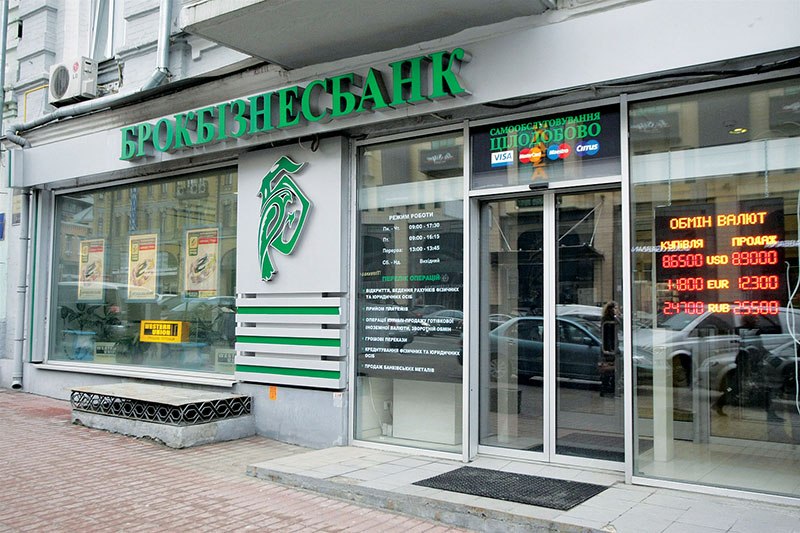During ex-President Viktor Yanukovych’s truncated presidency of more than three years, Ukraine’s coffers lost around $100 billion in assets, authorities say, including some $2.2 billion that his alleged front man, Serhiy Kurchenko, had embezzled, roughy half through tax evasion. Thus far, some $209 million of his personal and business-related assets have been frozen, General Prosecutor Oleh Mahnitsky stated on June 5 at a briefing.
Since March, the Prosecutor General’s Office has forwarded seven criminal cases on the alleged illegal activity of 50 Kurchenko-related companies to Ukrainian courts. Also accused are 62 suspects involved in the wanted businessman’s alleged fraud.
In March, Kurchenko, through his VETEK conglomerate, vehemently denied any wrongdoing.
“I am an honest Ukrainian businessman who has always been investing in Ukraine, the Kharkiv-native emphasized.
Kurchenko is believed to be hiding out in Russia. Meanwhile, his assets have been frozen in the European Union, Luxembourg, Great Britain and Canada, according to Kyiv-based watchdog Anticorruption Action Center. The group says Kurchenko is currently challenging the asset-freezes in courts.
Before disappearing on Feb. 19, just two days before Yanukovych fled office for exile in Russia, Kurchenko’s business empire spanned oil and gas, media, banking and a soccer team. Korrespondent magazine, in collaboration with Kyiv-based investment house Dragon Capital, estimated his net worth in December at $2.4 billion.
“Kurchenko used schemes in which his legal ownership was hidden, (and) liability for assets (were) minimized. However, his corporate rights for the company may also be confiscated by a court order,” said Roman Khrustenko, managing partner of BA Lexel.
Ukraine’s Security Service, the SBU, has accused Kurchenko of illegally purchasing Ukrainian Media Holding, which included Forbes Ukraine among 50 other brands, the Metalist Kharkiv soccer club, and Sparschweingas GmbH & Co, a network of 170 gas stations in Germany.
Still, despite being put on an international wanted list, Kurchenko continues doing business in Ukraine. In April, according to Ukrainian web portal Oil News, Kurchenko purchased Sovremennik, the third-largest network of gas stations in Crimea, and later in May, the Lukoil gasoline station network on the peninsula.
Additionally, he is still listed as the president of Metalist Kharkiv on the club’s website.
The Ministry of Revenues and Duties says that after checking the bank accounts and activities of 50 suspected companies in relation with Kurchenko’s alleged money laundering schemes, their accounts were temporarily frozen. The list of companies includes oil and gas refinery companies Odesa Oil Refinery and Gas Ukraine 2020, media holding Vesti Mass Media as well as other companies. Vesti, a free daily newspaper with a circulation of 350,000, is still distributed in Kyiv. And the media outlet has dismissed allegations of money laundering, and called a May 22 tax police raid on its office an act of “political pressure.”
In 2013 Kurchenko bought the Odesa Oil Refinery for $125 million. Later in the year, the plant was used as collateral to receive a loan from VTB, a Russian bank. But the procedure for getting this loan, as well as its conditions, shows evidence of fraud, investigators say.
Law enforcers now hope that their investigation will give Ukraine an opportunity to challenge the transfer of Kurchenko’s assets to the ownership of Russia’s VTB bank.
But getting control of the property is challenging.

On June 11, the central bank revoked the banking license held by Brokbiznesbank, which belonged to Serhiy Kurvhenko, due to insolvency. (PHL)
Kurchenko received two loans from Russia’s VTB Group worth $300 million, while the refinery’s shareholders approved the credit line from VTB to reach $370 million, according to an April 11 Kyiv Post investigation. The refinery was used as collateral for the loans. In addition, oil products that belonged to Kurchenko’s offshore company were used in one of them, worth $270 million.
“Besides confiscation of corporate property, a court can also decide to nationalize Kurchenko’s businesses if proof of his ownership is established,” said BA Lexel’s Khrustenko.
Interior Minister Arsen Avakov said that 80,000 tons of fuel and lubricants within Kurchenko’s group were seized and will be sold at auction.
In response to Avakov’s statement, anti-corruption commissioner Tetiana Chornovol said on June 11 that the arrested assets had not been sold as promised. “The money could be spent on the Ukrainian army,” Chornovol added.
But Khrustenko doubts that Kurchenko’s business will become national property. “Should the abuse of law be proven when purchasing the enterprises, Kurchenko’s ownership may be judicially invalidated or terminated using rules of restitution by returning the property to the previous owner,” he added.



